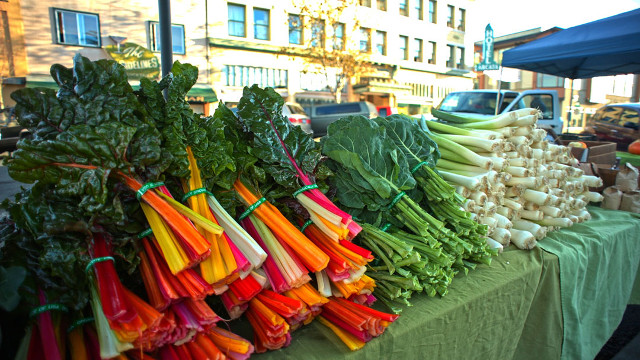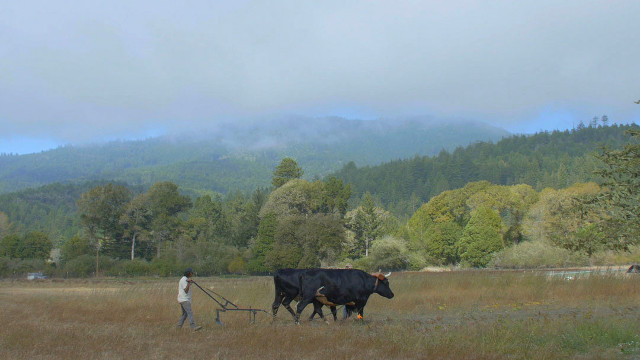
“Locally Grown: America’s New Food Revolution,” a 30-minute documentary, will air on KEET-TV, the North Coast’s PBS station, with two scheduled airings: Tuesday, Dec. 5 at 9 p.m. and Sunday, Dec. 17 at 4:30 p.m.
“This is a great opportunity for folks who missed our premier at Arcata’s Minor Theatre to see what everybody’s talking about,” says Suzanne Simpson, a co-producer of the new documentary. “All the feedback we’ve received has been tremendously positive, so it’s wonderful to share the film with such a wide audience.”
Simpson is also a co-founder of Locally Delicious, Inc., a nonprofit that encourages sustainable food production and is a partner in the project.
Independent filmmaker and HSU film professor David Scheerer collaborated with Simpson and many local players to write, direct, and produce the project.
“Locally grown, locally sourced food is better for us in many ways,” said Scheerer. “It’s ironic that we consider it revolutionary to eat like the grandparents of all peoples and nations just two generations ago.”
The 30-minute documentary takes viewers to the frontlines of a vibrant movement in Humboldt County where committed groups of people are striving to change people’s lives through how they grow and eat their food.

In several vignettes, the film highlights agricultural feats from the revival of indigenous fishing techniques and the re-establishment of historic grains to cutting-edge hydroponic technologies and innovative ways to connect local farmers with food-insecure families. Local producers like John Le Boyteau’s wheat farm and American Hydroponics take viewers through their daily lives and talk frankly about the challenges and opportunities for food producers.
“For the farmers and all who are working in this revolution, a healthy food system should be environmentally sustainable, economically beneficial, and provide equitable access to food for all,” says Simpson. “For this new brand of American revolutionary, from farmers and grocers to chefs, and home cooks, the goal is to establish a food system that truly is by the people and for the people.”
Start Your Own Revolution with ‘Locally Grown’ Field Guides
The film’s website, locallygrownthefilm.com, features in-depth field guides to help individuals and communities get started with their own agricultural revolutions. Outlining everything from where and what to grow to potential sources of funding for community-wide food projects, the guides allow anyone to replicate the success of Humboldt County’s food system.
“We’re really interested in modeling the process so others can emulate it,” says Joshua Frye, professor of communication at HSU and a co-author of the film’s field guides.
The easy-to-follow Get Started guide by co-producer Suzanne Simpson takes communities through the steps to get started building food sovereignty.
Two field guides, here and here, written by HSU social work professor Jen Maguire and anthropology professor May Patiño walk readers through establishing a local food policy council. These councils bring together local producers and consumers, like individuals, school districts and health care providers, and work to coordinate efforts.
The cultural field guide by Frye and fellow professor of communication Michael Brunner takes readers through building a movement behind the food revolution, from conducting public relations campaigns to identifying opinion leaders and early adopters.
Finally, the education field guide by political science professor Noah Zerbe, introduces readers to the concept of “food studies,” which gives teachers ways to approach a range of subjects through the idea of food, whether that’s food as a cultural tradition, economic issue, or political movement.